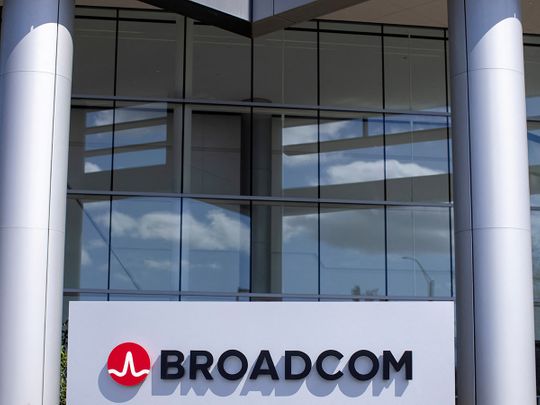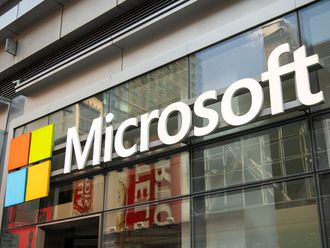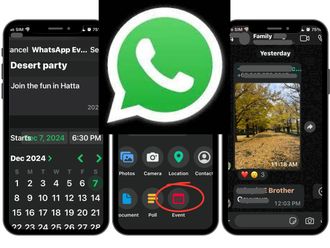
San Francisco: Apple Inc. signed a new multiyear, multibillion-dollar deal with Broadcom Inc. to develop 5G radio frequency components, extending a sometimes-contentious relationship between two of the world's biggest tech companies.
The collaboration will include wireless connectivity parts and FBAR filters, which help mobile phones focus airwave signals and reduce interference, Apple said in a statement on Tuesday. The FBAR filters will be designed and built in several US manufacturing hubs, including Fort Collins, Colorado, where Broadcom has a major facility.
Apple already helps support more than 1,000 jobs in Fort Collins, and the partnership will enable Broadcom to continue to invest in automation projects, Apple said.
The iPhone maker is spending tens of billions of dollars to develop 5G technology, which is expected to help power the next generation of consumer electronics, in the US. 5G offers quicker response times and 10-fold speed improvements that are needed for features like autonomous vehicles and virtual reality gaming.
These investments are part of the commitment Apple made in 2021 to pump $430 billion into the US economy over the next five years. Apple said it's on pace to meet that target.
"We're thrilled to make commitments that harness the ingenuity, creativity and innovative spirit of American manufacturing," Apple Chief Executive Officer Tim Cook said. "All of Apple's products depend on technology engineered and built here in the United States, and we'll continue to deepen our investments in the US economy because we have an unshakable belief in America's future."
read more
Qualcomm Inc., another Apple supplier, fell less than 1% after the news. Broadcom rose about 1%.
Apple is Broadcom's largest customer and accounted for about 20% of the chipmaker's revenue in the last fiscal year, amounting to almost $7 billion. Qualcomm got 22% of its annual sales from the iPhone maker, representing nearly $10 billion.
Apple's renewed arrangement with Broadcom is an extension of a long-running supply agreement between the two. The iPhone maker is emphasizing where that work gets done at a time when politicians are focused on boosting domestic production of the vital electronic components.
The iPhone is Apple's top moneymaker, generating more than half of its $394.3 billion in revenue last year. The phone also has helped fuel growth at Broadcom, which refers to Apple as its "large North American customer" during earnings calls. The chipmaker makes a combined component that handles both Wi-Fi and Bluetooth functions on Apple devices.
Broadcom also makes the short-range connectivity for mobile phones and the so-called RF front end that manages radio signals the phone needs to transmit and receive cellular communications. Qualcomm is the dominant maker of modems, the chips that take those radio signals from the RF front end and convert them into the data used by the phone. Qualcomm typically supplies the RF front end and modem to its customers. Apple only uses its modems.
Cupertino, California-based Apple has been pushing to replace the chips inside its devices with homegrown components and is looking to replace Broadcom with its own Bluetooth and Wi-Fi chip by 2025, Bloomberg has reported. As part of the shift, Apple also aims to ready its first cellular modem chip by the end of 2024 or early 2025, letting it swap out electronics from Qualcomm too. Apple is also working to develop its own RF component, but that will take years, and the company will need to rely on Broadcom in the meantime.










